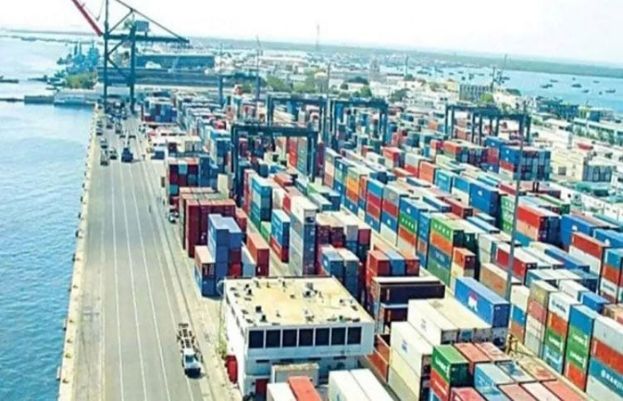Junaid Anwar Chaudhry Vows to Transform Port Qasim into Maritime Industrial Ecosystem. Minister unveils ‘Sea-to-Steel Green Corridor’ to revive Pakistan Steel Mills and boost $100bn revenue goal. Federal Minister for Maritime Affairs Muhammad Junaid Anwar Chaudhry on Monday announced an ambitious plan to transform Port Qasim into a fully integrated maritime-industrial ecosystem, saying the port’s modernization will help generate at least half of Pakistan’s $100 billion revenue target. Speaking as the chief guest at a ceremony marking Port Qasim’s recognition as the world’s ninth most improved container port, the minister said the achievement reflected the success of ongoing reforms in port management and digital operations. “Port Qasim improved its performance score by 35.2 points, showing major progress in reducing cargo dwell time, streamlining berth operations, and adopting digital management tools,” the minister said. 1. ‘Sea-to-Steel’ Corridor to Revive Industry Chaudhry unveiled the government’s plan to establish Pakistan’s first “Sea-to-Steel Green Maritime Industrial Corridor”, expected to save $13 billion over the next decade and revive Pakistan Steel Mills. He said the initiative will integrate port operations with industrial activity, creating a continuous value chain from maritime logistics to steel manufacturing. In the second phase, an Integrated Maritime Industrial Complex (IMIC) will be developed at the Iron Ore and Coal Berth (IOCB) terminal, linking ship recycling facilities with steel production to enhance domestic output and create jobs. “The ‘Steel-to-Green Sea’ project will be jointly implemented by the Ministry of Maritime Affairs and the Ministry of Industries to ensure sustainable industrial development,” he added. 2. Expansion and Green Modernization The minister said the Port Qasim Authority (PQA) is pursuing multiple projects to expand capacity and improve efficiency, including new multipurpose and container terminals, the Port Qasim Special Economic Zone (PQSEZ), and the adoption of Green Port technologies. He highlighted that ongoing dredging, improved cargo handling systems, and digital connectivity are part of a broader modernization plan aimed at facilitating trade flows and attracting foreign investment. The PQSEZ, Chaudhry said, will become a modern industrial and logistics hub, supported by upgraded road, rail, and communication networks to reduce logistics costs and strengthen trade competitiveness. Energy and industrial projects — including LNG terminals and power plants — are also helping bolster Pakistan’s energy security and industrial growth. 3. Vision for Maritime-Led Growth Reaffirming the government’s commitment to maritime-led economic development, the minister said modernization of ports, expansion of trade corridors, and creation of specialized industrial zones are central to achieving long-term economic stability. “The vision is to make Port Qasim not just a cargo handling facility, but a comprehensive maritime-industrial ecosystem powering Pakistan’s future growth,” he concluded.
Port Qasim to become Pakistan’s Maritime-Industrial hub, Junaid Anwar Chaudhry

